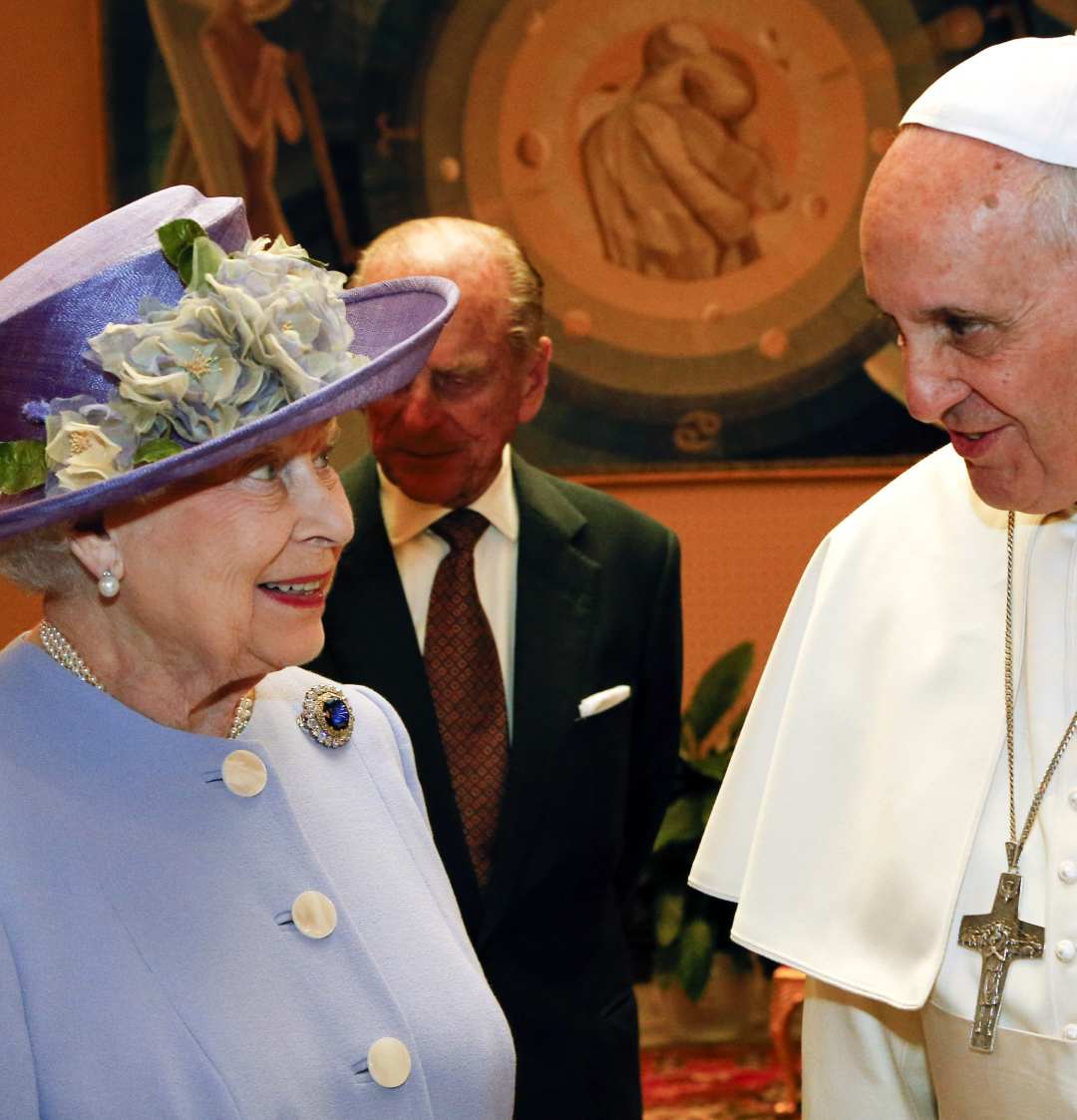What Will It Take to End Stay-at-Home Mom Shame?
\201cOur culture around caregiving is ripe for reexamination.\201d

Even after I graduated from Stanford Business School, all I wanted to be was a mom.
So after my first child was born on New Year's Day 2016, I let myself dive into the experience. When I rocked my baby night after night at 3 a.m. (while endlessly scrolling Instagram), I was exhausted but content. I loved the sheer magic of watching a human grow and learning something new—in this case, the basics of how to take care of that being.
Five months later, I announced that I wanted to downshift my paid work to two days a week and spend the rest of my time at home enjoying said contentment. Everyone around me—from my husband to my mentors to my mother—had something to say about it.
My family worried I'd be bored. My friends thought I was turning my back on the Lean In rallying cry that was still in the zeitgeist. The internet served up working mom content with crisp blazer-clad power women. The inverse was the athleisure-clad women of the Real Housewives and the cultural depiction of overwhelmed mothers buried under laundry—a very slight upgrade from the apron-clad mothers of the 1960s serving cocktail trays to their husbands after a long day at the office.
When I announced that I wanted to downshift my paid work to two days a week and spend the rest of my time at home, everyone had something to say about it.
Meanwhile, I felt more modern and ambitious than ever before. My husband and I had agreed to block and tackle housework. He made the meals; I held down the fort with the baby. Our relationship felt equitable, not traditional. Sure I was tired (caring for a newborn isn’t easy) but I was also inspired. Learning how to take care of my child and meeting my new, postpartum self reinvigorated me to explore what came next.
I was tinkering with a new idea online—which would eventually become Mother Untitled, the first community for women on career pauses to focus on family. I felt creative, not stagnant. The time I spent at home, away from my professional duties, allowed me to explore new ideas and engage in creative experimentation.
I was meeting women on the playground and in baby classes who occasionally wore athleisure—never aprons. None of us were confined to our homes. We talked about our former careers, new ideas that inspired us, and what we were learning about ourselves during this time. None of us fit the outdated caricature of the stay-at-home mom. But all of us felt judged—shamed, even—by someone in our orbit, who thought we were "giving up" on our drive, productivity, success, or worse, our feminism. Even for the most self-assured of us, that shame can cause us to question our choices or feel self-conscious when someone at pick-up asks, “What do you do?” Above all, that shame makes us generally enjoy this time in our lives a little less than we deserve to.
Stay In The Know
Get exclusive access to fashion and beauty trends, hot-off-the-press celebrity news, and more.
All of us felt judged—shamed, even—by someone in our orbit, who thought we were 'giving up' on our drive, productivity, success, or worse, our feminism.
Fast forward eight years and little progress has been made. Stay-at-home moms still feel judged and shamed for their choice. Last year, when Mother Untitled surveyed 1,200 mothers in full-time stay-at-home motherhood or downshifted careers, more than half of them said they received negative feedback when they announced that they wouldn’t immediately be returning to work. In response to the question, “How do you feel others perceive your decision to become a stay-at-home mom?” the most common answers were “misunderstood, spoiled, and judged.”
Indeed, nearly 80 percent of our survey participants said they felt that most people don’t understand the work that goes into being a primary caregiver. This lack of understanding adds to the stigma of stay-at-home mothering, which only reinforces the shame.
The first step to gaining understanding and lifting the stigma around stay-at-home motherhood is realizing that all parents share more similarities than differences. There’s no need for there to be a divide between stay-at-home mothers and mothers who do paid work outside the home. Our survey results prove this: 1 in 3 mothers in the general population reported being extremely likely to pause their careers for family in the next two years, and half said they planned to downshift their working hours. Ninety percent of stay-at-home parents want to return to the workforce after time away from their careers.
The first step to lifting the stigma around stay-at-home motherhood is realizing that all parents share more similarities than differences.
All of this points to a unifying fact—our generation of women is ever-evolving when it comes to the work and family equation. Stay-at-home mothers will likely become working mothers at some point, and working mothers may become stay-at-home mothers. And more of us exist in the gray area between these categories than ever before.
We also need to reexamine the assumption that stay-at-home motherhood is a luxury, available only to the privileged. First, in defining the role in this way, we deny full-time caregivers the dignity and respect the essential work of raising kids demands. It's important to note, too, that for many families—62 percent, according to our survey—the decision to stay home with their children is often fueled by financial need. In the U.S., many families simply can't afford the exorbitant cost of childcare. When our culture can part with the idea that stay-at-home motherhood is a luxury, we can adopt a more nuanced view of every parent's choices and the immense work of parenting in all its forms—a view that lets us continue to find more common ground.
When we meet on that common ground, such as at the school drop-off line, I challenge you to ask a parent you may have overlooked as "just a stay-at-home mom" about her plans for the day. You may find that her response shifts your perspective. She may share a class, side project, hobby, or volunteering gig she's working on, alongside motherhood, as half of the stay-at-home parents in our survey reported. If she’s focusing on her family at this moment, it's important to recognize that constant caregiving entails more than packing lunches or folding clothes, as it's often portrayed. It demands endless research and real skills, from tackling sleep issues to managing big emotions—including your own.
Stay-at-home mothers will likely become working mothers at some point, and working mothers may become stay-at-home mothers.
These are shared issues for mothers, whether they work at home or do paid work (or something in between). For far too long, our culture has devalued the significant daily work of caregiving, viewing it as less important, easily outsourced, or mundane compared to the productivity of the workforce. This dismissive attitude often looks down on parents who dedicate their time to caregiving responsibilities. What we know now, from a variety of research, is that parenting is the most demanding it's ever been, with the advent of screens, a rise in bullying and mental health issues, and constant information overload. While these responsibilities belong to all parents, for stay-at-home parents, they take place against the backdrop of daily, minute-by-minute caregiving and can be an education in and of itself.
I was lucky enough to go to one of the best business schools in the world. But I got my greatest education—on who I really am and what I wanted to become—in my five years as a full-time, at-home parent. Maybe that was what I was yearning for when I applied to grad school in the first place.
Our culture around caregiving is ripe for reexamination. Much attention has been paid to how we can better support working parents. It's time to include stay-at-home mothers in the conversation—and end stay-at-home mom shame for good.
Neha Ruch is the founder of Mother Untitled, the leading platform for ambitious women leaning into family life. A thought leader, influencer, and sought-after speaker focusing on women, work, parenting and identity, Neha’s work at Mother Untitled is catalyzing a shift in how society views stay-at-home motherhood. Her book, THE POWER PAUSE: How to Plan a Career Break After Kids – and Come Back Stronger Than Ever, will be published by Putnam in January 2025.
-
 I Injected My Body's "Liquid Gold" to Address Undereye Fine Lines and Dark Circles
I Injected My Body's "Liquid Gold" to Address Undereye Fine Lines and Dark CirclesBut would I do it again?
By Michelle Rostamian
-
 Queen Elizabeth Gave the Perfect Response When Pope Francis Presented Her With Priceless Gifts for Prince George
Queen Elizabeth Gave the Perfect Response When Pope Francis Presented Her With Priceless Gifts for Prince GeorgeThe late pope spared no expense when it came to treating the infant prince in 2014.
By Kristin Contino
-
 Want Healthier-Looking Hair? This Unexpected Beauty Product Might Be the Answer
Want Healthier-Looking Hair? This Unexpected Beauty Product Might Be the AnswerSkip the shampoos, glosses, and treatments.
By Marie Claire Editors
